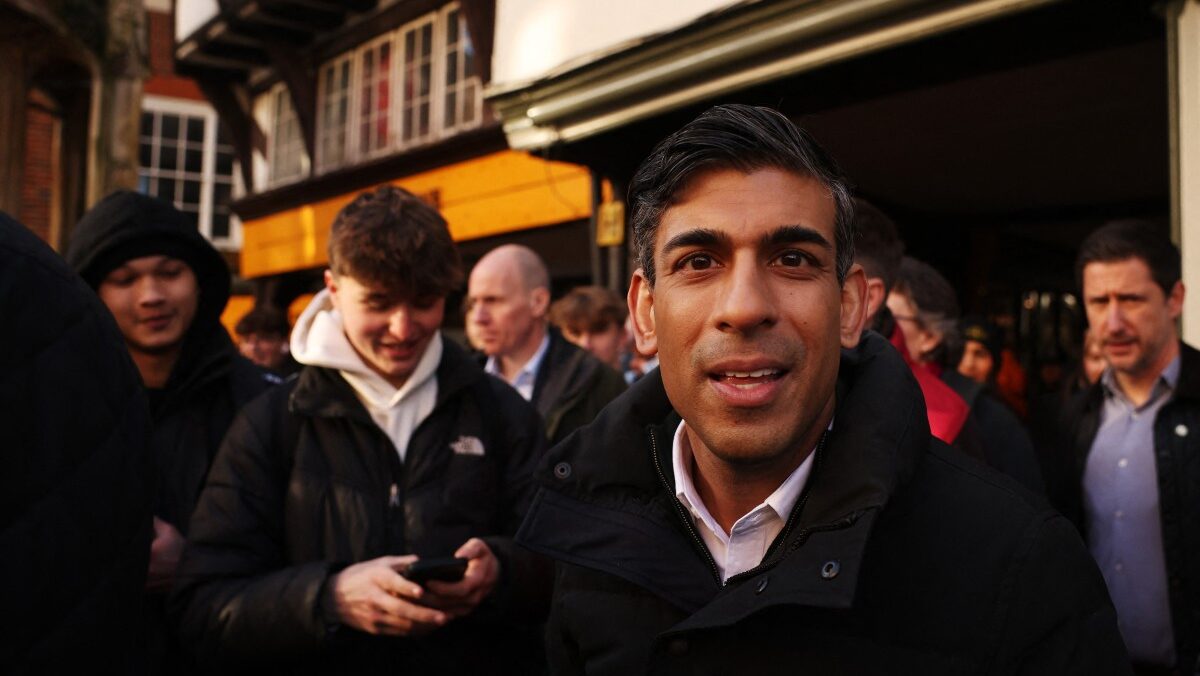
Britain’s Prime Minister, and leader of the ruling Conservative Party, Rishi Sunak reacts as he meets with local residents during a walkabout with Conservative MP for Winchester (unseen), in Winchester, southern England on January 19, 2024.
Photo: Dan Kitwood / POOL / AFP
Tory ‘moderates’ are likely to hold “the whip hand” in their party after this year’s general election, according to new polling.
Some conservatives living in Britain may find it hard to believe that after 14 years during which successive Tory prime ministers have presided over mass immigration, flimsy law and order, the betrayal of Brexit, the swallowing of the ‘woke’ and net zero agendas, and the continued wreckage of the family unit, defence and decent education, the nominal Conservative Party is about to become even less conservative. But analysis of polling data by The Times newspaper suggests this could in fact be the case.
The paper says that, of the 169 seats the party is forecast to retain following a proper beating at the next general election, the more socially liberal—so-called ‘One Nation’—MPs will hold the biggest faction. They are expected to retain 50 members, whereas more than half of the 60 Tory MPs who rebelled against Rishi Sunak’s government in an attempt to toughen up the Rwanda illegal migration bill, are likely to be voted out.
Several of the more prominent right-wing Tory MPs, such as former party vice-chairman Lee Anderson, represent working class ‘Red Wall’ seats in the north and Midlands of England, which Boris ‘Get Brexit Done’ Johnson won from Labour in the 2019 election, but which Rishi Sunak’s hopeless party is expected to lose this time around.
One senior Conservative MP, described by the Times as “on the right,” told the paper:
Those on the right playing a long game in the hope of taking back control may be sorely disappointed. In more ways than one, waiting for a heavy defeat could prove to be a disastrous strategy.
Even accounting for supporters of some of the Parliamentary Conservative Party’s more right-wing factions, such as the ‘anti-woke’ Common Sense Group, only puts the number of ‘rightish’ MPs expected to retain their seats at 32—still far behind the number that will be enjoyed by the party’s liberal wing.
The makeup of the party following the election will play a big role in who it chooses to be its next leader—that is, who will lead it into general elections after 2024. This will further determine how long the Tories will spend out of office, during which time their even more liberal Labour counterparts will take the reins.
As one online commentator put it, liberals holding the Tory whip hand “should guarantee an even longer term in the political wilderness. It’s ‘moderation’ that’s sunk them.”
